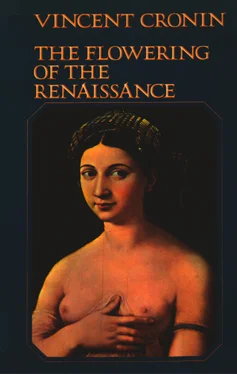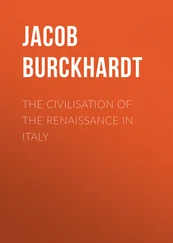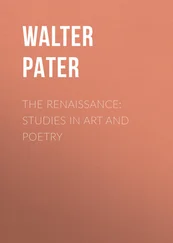Whereas most Italian cities were famous for this or that product—Lucca for silk, Venice for ships, Milan for steel—Rome produced nothing at all. She had no industries, no raw materials. In 1500 she just about met her needs in corn, grown in the Campagna’s black, difficult soil, but as the century progressed, most of her bread was baked from imported grain. Romans disliked the flat wine of Latium, and so wine had to be imported too, mainly from Corsica, Crete and Naples. Cloth came in from Florence, paper from Fabriano, soap from Genoa, knives and swords from Milan, carpets from Turkey.
To meet the cost of these goods Rome had only her pilgrim trade. The town where St Peter had been crucified and St Paul beheaded attracted 50,000 pilgrims annually. According to the census of 1527, Rome had 236 inns, lodging houses and taverns, one to every 288 inhabitants, compared with one per 1488 inhabitants in Florence. The best of them, the Bear, Sun, Ship, Crown, Camel and Angel, stood close to the Pantheon, and their landlords would send boys to the city gates in order to solicit customers among the pilgrims, most of whom arrived in Lent, a third of them on their own horses. In order to gain the plenary indulgence Italians had to spend fifteen days in Rome, non-Italians eight. During this time they lived well—consumption of meat was extremely high—and they bought guide-books and souvenirs. To the Romans they were an indispensable source of income.
Even without foreign pilgrims, Rome was a cosmopolitan place. Most of its inhabitants had been born outside Rome, 20% were non-Italians, chiefly Spaniards and Germans, while only 16% or 6,400 were Roman born. Of these a handful possessed citizenship and though they claimed the right to rule their city, in practice it was the Pope who ruled, for not only was he by far the largest employer, but he collected and spent the revenue. It was the Pope who chose the Governor—a cleric—and he who paid all the magistrates. True, an ordinary Council met regularly, composed of the various municipal magistrates, and also less often a Great Council, which included the same persons and selected civic notables. The Councils sometimes passed bold decrees against the Pope’s will, but hardly ever dared put them to the test. A popular rising in 1143 had instituted 56 senators, but the Popes had whittled them down to one. This last senator dressed in fine sunset colours—crimson gown, brocade cloak and fur cap—he had the right to a page and four servants, he carried an ivory sceptre, but his power was nil. There was also a Colonel of the Militia of the Roman People—but no militia.
The Romans accepted this. There was no powerful leaven of craftsmen as in Florence, and therefore little republican feeling. Roman citizens were usually of noble or gentle birth and content with trappings of power that vaguely recalled imperial splendour. Yet what privileges they did possess—be it only the Conservators’ right to music at meals—they clung to tenaciously, and on tiny points of protocol they made many a petition to the popes.
The Romans of 1500 retained certain characteristics of their forebears. They loved ceremonies and spectacles. They responded to fine phrases and rolling sentences. They expected of their ruler dignity and largesse, and if they did not get it abused him with satirical and licentious songs. They had a cosmopolitan outlook, though this did not necessarily imply breadth of vision. But they were not grave like the classical Romans. They were turbulent, rowdy and changeable as their weather. When a new pope was elected, they looted, as though by right, his old palace, and when he died, the interregnum was bloodied with murder.
This unproductive half-decrepit city, swept in winter by the icy tramontana and in autumn by a sultry miasmal breeze that caused tertian fever, might long ago have been abandoned to wolves, nettles and ivy but for the fact that it was the see of St Peter, and therefore the seat of government of Catholic Christendom. Here the Curia kept archives and registers of appointments; here they administered justice and held final courts of appeal; it was here that a Flemish burgher applied if he wished to drink milk in Lent, here that a Spaniard who had traded with the Turk sought absolution. But behind the bustle of day-to-day business, much of it petty, lay a central, crucial fact: it was here in Rome that the man who claimed to be the Vicar of Christ sought to preserve and interpret to the world Christ’s message.
In order to accomplish this task the Bishop of Rome decided at a very early date that he required to be independent. It was perhaps the most far-reaching decision ever taken in the Church when the Bishop of Rome, like the bishops of other cities, agreed to accept estates bequeathed to him in the wills of fervent Christians. From being a property-owner, the Bishop of Rome gradually became a lord of towns and cities, and finally, through the Donation of Pepin, the lord of whole provinces. By 1500 the Pope ruled the largest part of Italy after the King of Naples. It comprised Latium, Umbria, Bologna, Romagna and the March of Ancona, with a population of over one million.
The Papal States provided the Pope with political independence, but not with economic independence. The States were in fact as much of an economic burden as Rome, which produced nothing and consumed much. Around 1500 Rome, through customs and excise, and the Papal States, through taxes, which were kept low, provided the Pope with 144,400 gold ducats, at a time when the purchasing power of the ducat was approximately that of one pound sterling today. 1 Out of this the Pope had to pay costs of administration, as well as troops required to defend the States against other Italian powers, and to coerce any feudal prince who declined to pay his taxes.
It was his need to achieve economic independence that turned the Pope to tax Church property outside Italy. This happened in the reign of John XXII, when the Popes were living in Avignon and the Papal States were in revolt. In 1318 John decreed that in future the holder of a benefice must pay to Rome annates—his first year’s revenue—in order to defray costs of the Church’s administration. Annates and similar taxes provided the Pope with a ‘spiritual revenue’ equal in amount to the ‘temporal revenue’ from Rome and the Papal States. So the Pope achieved his goal of economic independence.
But this independence was constantly jeopardized. The French King, by the Pragmatic Sanction of 1438, reduced annates from France by four-fifths, and then played on the Pope’s need to get the Sanction lifted. A famous example occurred when Louis XI asked Pius II to give the red hat to his favourite, Jouffroy Bishop of Arras. Arras was a tall, handsome, ruddy-cheeked courtier described by the women of Rome, who had good cause to know, as Venus’s Achilles. The sacred college informed Pius that Arras was quite unsuitable, a know-all and a boaster, yet ‘influenced as easily as a child’, while the holy German cardinal, Nicholas of Cusa, actually burst into tears at the proposal. Pius pointed out that Arras, who was Legate to France, had promised to get the Pragmatic Sanction lifted and, if rejected, ‘he will rage like a serpent and spit out all his venom on us.’ Pius was the most eloquent man of his day—eloquence he defined as saying the same thing three times over—and he finally convinced the sacred college. But not content with his red hat, Arras next asked for Besançon and Albi, two very rich sees. Pius said he could have one, but not both, for that would be a grave abuse. Arras flew into a rage, hurled insults and threats at the Pope and finally tried to bribe him, offering 12,000 ducats for both sees. Pius’s patience gave way. ‘Go to the devil,’ he said, and in a sense Arras did. He scandalized Rome with his debauchery and scenes of violence, hurling silver dishes at his servants and even overturning his dining-room table. The Pragmatic Sanction was, however, lifted. Such was the price Popes sometimes had to pay for economic independence. No wonder Pius’s dearest ambition was to see himself at the head of a crusading army, kings as his lieutenants, renewing papal authority with victories over the Turk. Pius’s crusade came to nothing but the economic problem for long continued to bedevil the Papacy.
Читать дальше












